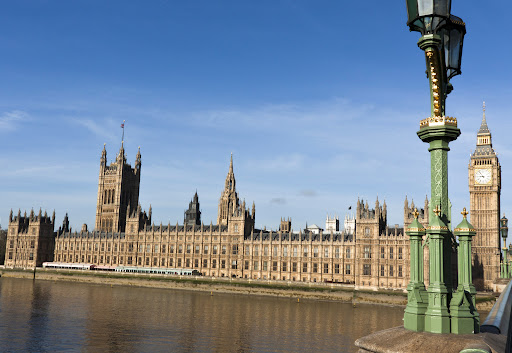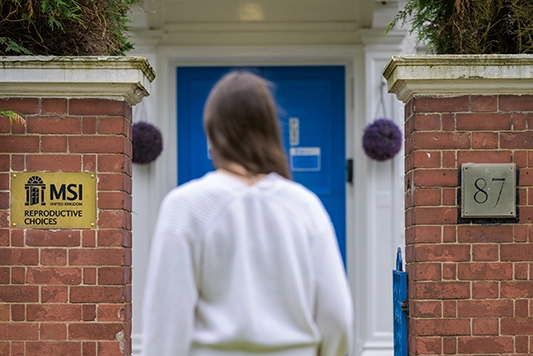New data released ahead of World Contraception Day, reveals UK women’s needs have been neglected during the pandemic – with young women and girls worst affected
London – Friday, 24th September 2020:
More than a third (36%)[i] of UK women are unsure how to access contraception during the coronavirus pandemic, new research from MSI has revealed.
The survey of 1,000 UK women, conducted by IPSOS Mori on behalf of the leading sexual and reproductive health charity revealed almost a quarter (24%) of UK women have needed to access contraception during COVID-19, but many have been left in the dark about how and where to do so.
- Less than half (46%)[ii] thought they could access contraception through their GP.
- Less than half (48%)[iii] thought they could access contraception through a pharmacy.
- More than a third (35%)[iv] of the women who tried to access a contraceptive service, thought that the service had got worse.
Julia Hogan, lead contraceptive nurse for MSI UK, said:
“Women’s need for contraception does not stop during an emergency, but once again, women and girls have been disgracefully neglected. Many have been left confused about where they can access contraceptive services during COVID-19, unable to use the method of their choice or worryingly, unable to access a service at all.
“All too often our teams speak to women who have become pregnant while on contraception waiting lists and with no end in sight to the pandemic, it is more important than ever that women know how and where to access the contraception that is right for them.”
A postcode lottery of care
The diversion of resources to the COVID-19 response combined with chronic underfunding of sexual health over the last 10 years have seen GP surgeries and sexual health centres across the country cancelling ‘non-urgent’ contraception appointments, especially for the most effective long-acting methods in a postcode lottery of care. Some have had to close their doors completely.
Young women and girls aged 16-24 were more likely (34%)[v] than women, 24-35 (29%)[vi] to report a need for contraceptive services, with 23%[vii] of women aged 35-44 reporting a need for contraception during the pandemic.
More than a third (35%)[viii] of the 200 women surveyed who tried to access a contraceptive service, thought that the service had got worse, with around 1 in 7 (14%)[ix] stating that there were no appointments available in their area, and just under 1 in 10 (9%)[x] stating the clinics in their area were closed or that the contraception service and/or product they needed was unavailable.
Suzi, 29 from London was due to have her hormonal coil removed in March when the pandemic hit:
“I was meant to have my hormonal coil removed in March as it had run out, but then we went into lockdown. My local sexual health clinic said they weren’t doing any non-urgent procedures and that it would cover me until March 2021. I was worried about it not working or getting infected, but I wasn’t sure what to do after they said they couldn’t remove it or where else to go, so I just had to hope it would be OK.
“I recently found out that I can get my coil removed at the GP surgery, but they won’t put a new one in so I will have to go on the contraceptive pill – which I don’t really want to do. The nurse who advised me also told that it was untrue my coil would last until March 2021 and I should be using other contraception such as pills or condoms.”
“I don’t want to get pregnant, especially during a global pandemic and it’s really confusing being passed from pillar to post when I’m trying to be responsible and keep myself protected.”
What women want
The survey also asked women what they want from a contraceptive service in a bid to understand how to improve access to contraception for women across the country.
The research revealed that:
- 44%[xi] of women want healthcare providers to give out longer supplies of pills or condoms
- Nearly a third (31%)[xii] want easier access to free-short term contraception at pharmacies, by removing the need for a prescription
- Over a third (34%)[xiii] of women would like more information on how to access services remotely
- Just over a quarter (26%)[xiv] of women want more information about where they can access contraceptive services more generally
- Just over a fifth (21%)[xv] of women wanted longer opening hours and a fifth (20%)[xvi] thought more appointments would improve access to contraceptive services in their area
New contraception clinics
In response to the crisis in contraception access, leading abortion provider MSI UK has launched two independent contraceptive clinics, one in Hemel Hempstead and one opening in Wakefield providing the most effective long-term methods, including the coil and the implant. It is keen to work with more local authorities to ensure more women are protected with the contraceptive method of their choice.
Caroline Gazet, Clinical Director for MSI UK said:
“Lack of investment in contraceptive services has led to a postcode lottery of care, with poor access and unacceptable waits, particularly for the most effective long-acting methods like the implant and coil – women are then shamed if they need to access abortion care.
“The global pandemic has only exacerbated how difficult it can already be for women to access contraception when they need it most, but by listening to what women want and working in tandem with providers, local authorities can ensure that women have access to the full range of contraceptive methods available, so they can choose the contraception that is best for them.”
MSI UK is here for you if you need to access abortion care. To book a consultation call their advice line on 0345 300 8090.
If you are in Wakefield or Hemel Hempstead and would like to book a contraception telephone consultation, call the dedicated advice line on 01454808100, Monday to Friday, 8am to 4pm.
Notes to Editors
The research was carried out by Ipsos MORI on behalf of MSI. Ipsos MORI interviewed a sample of 1,000 women aged 16-50 in the UK. Research was conducted using its online i:omnibus between 29th July – 3rd August 2020. Data has been weighted to the known offline population proportions for age within gender, region, working status and income.
For interviews, photography and further information please contact:
Email: [email protected]
Tel: 07769166516
Case Studies
Suzi, 29, from south West London was due to have her hormonal coil removed in March when the pandemic hit:
“I was meant to have my hormonal coil removed in March as it had run out but then we went into lockdown. My local sexual health clinic said they weren’t doing any non-urgent procedures and that it would cover me until March 2021. I was worried about it not working or getting infected, but they said they couldn’t remove it, so I just had to hope it would be OK.
“I recently found out that I can get my coil removed at the GP surgery, but they won’t put a new one in so I would have to go on the contraceptive pill – which I don’t really want to do. The nurse who advised me also told me that it was untrue my coil would last until March 2021 and I should be using other contraception such as pills or condoms.”
“I don’t want to get pregnant, especially during a global pandemic and it’s really confusing being passed from pillar to post when I’m trying to be responsible and keep myself protected.”
Beth, 29, also from North East London decided to have her non-hormonal coil removed in during lockdown due to persistent problems:
“I had persistent and recurring thrush since I’ve had the copper coil in and felt that there was a link. I was repeatedly told by my GP that it wasn’t the case despite having read contradicting information online. It was frustrating not being listened to.
“Following more problems during lockdown, I requested to get it removed. I initially had to wait as I was told they weren’t doing non-emergency appointments, but I then managed to find an appointment at a sexual health clinic.
“I wish there was more information around contraception, how to access it and where – it feels like women’s sexual health and contraception isn’t considered a priority when it should be. I also think there should be more time to sit down and go through your options properly, so you’re able to make the choice that is right for you. Although there is a lot of information online now, as a younger woman, it felt like the pill was the only option when there are plenty of others out there.
About MSI Reproductive Choices UK
At MSI Reproductive Choices UK we are unapologetically pro-choice. As part of the global organisation MSI, we believe that everyone has the right to make choices about their own body and future. As one of the UK’s leading providers of safe abortion and vasectomy, our team members provide high quality, compassionate care for the women and men who need us.
About MSI
MSI is a global organisation providing personalised contraception and safe abortion services to women and girls. Our local teams of professionals are passionate about the work they do in communities across 37 countries. The services they provide give a woman the power to choose when she has children so that she’s free pursue her plans and dreams for herself and her family.
About World Contraception Day
World Contraception Day takes place on September 26th every year. The annual worldwide campaign centres around a vision where every pregnancy is wanted. Launched in 2007, WCD’s mission is to improve awareness of contraception and to enable young people to make informed choices on their sexual and reproductive health.
World Contraception Day Coalition partners are:
Centro Latin Americano Salud y Mujer (CELSAM); Deutsche Stiftung Weltbevoelkerung (DSW); EngenderHealth (EH); European Society of Contraception and Reproductive Health (ESC); Family Planning 2020 (FP2020); International Federation of Pediatric and Adolescent Gynecology (FIGIJ); International Planned Parenthood Federation (IPPF); Marie Stopes International (MSI); Pathfinder International; Population Services International (PSI); The Population Council; The United States Agency for International Development (USAID); United Nations Population Fund (UNFPA); Women Deliver (WD).
[i] The research was carried out by Ipsos MORI on behalf of Marie Stopes. Ipsos MORI interviewed a sample of 1,000 women aged 16-50 in the UK. Research was conducted using its online i:omnibus between 29th July – 3rd August 2020. Data has been weighted to the known offline population proportions for age within gender, region, working status and income.
[iii] Ibid
[iv] Ibid
[v] Ibid
[vi] Ibid
[vii] Ibid
[viii] Ibid
[ix] Ibid
[x] Ibid
[xi] Ibid
[xii] Ibid
[xiii] Ibid
[xiv] Ibid
[xv] Ibid
[xvi] Ibid







